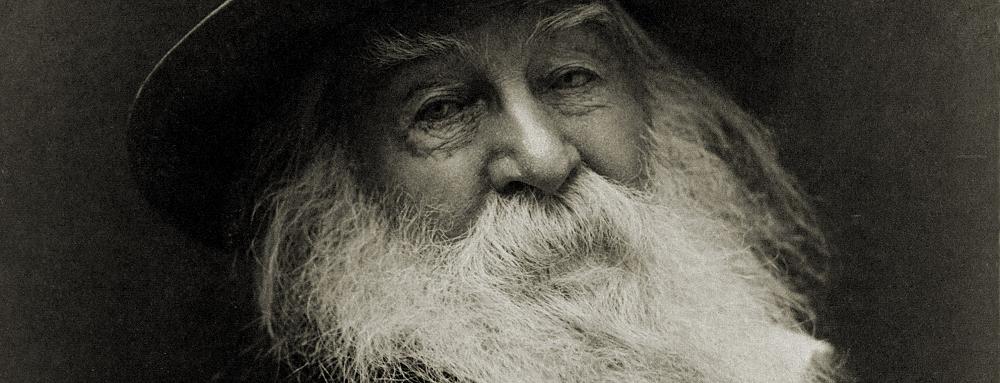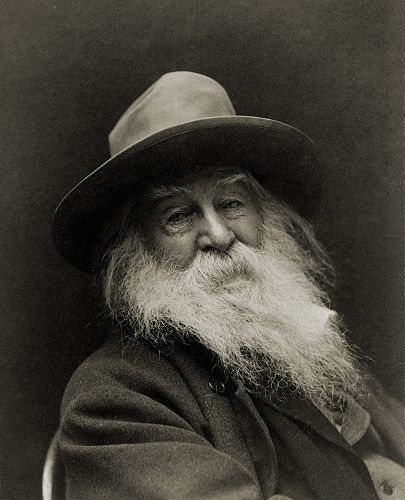
Important Early Editions of Walt Whitman’s Leaves of Grass
The current Reed Gallery exhibition at Dunedin City Library, The Good Gray Poet, commemorates the 200th birthday of the American poet Walt Whitman, which occurs on 31 May 2019.
Gathered by the Dunedin collector William Heywood Trimble (1860-1927) and donated by his daughter, Dorothy Stewart (1887-1974), the Whitman Collection today numbers more than 700 volumes, including numerous important editions of his classic work Leaves of Grass.
Published in 1855, the first edition contained twelve untitled, unrhymed poems, written in long, irregular lines. Whitman subsequently spent four decades revising Leaves of Grass, which grew to a collection of almost 400 poems by the time of his death in 1892.
The Whitman collection lacks the 1855 first edition of Leaves of Grass, but contains the second, third and fourth editions, as well as numerous early editions of other works by Whitman.
Published in 1856, the second edition was a much thicker volume of 32 poems. The poet Ralph Waldo Emerson (1803-1882) had written a letter of encouragement to Whitman after reading a review copy of the first edition. The base of the green cloth spine of the second edition features Emerson’s words “I greet you at the beginning of a great career” stamped in gilt. Whitman also reprinted Emerson’s entire letter near the end, without authorisation.
The third edition of Leaves of Grass (1860-61) contains major new sections or ‘clusters’ of poems which were considered controversial. These included ‘Enfans d’Adam’ (Children of Adam) and ‘Calamus’, celebrating heterosexual and homosexual love respectively.
Whitman is also remembered as the pre-eminent poet of the American Civil War period (1861-1865). The fourth edition of Leaves of Grass was his first post-War edition. It included Drum-Taps, a group of poems commemorating President Lincoln and the Civil War, and its Sequel, which included Whitman’s most anthologised poem ‘O Captain! My Captain!’
The Whitman Collection also contains an 1876 third printing of the fifth edition, which Whitman issued to mark the centennial of the United States. Whitman autographed each copy, making this the first time his name had appeared on the title-page of an edition of Leaves of Grass (albeit not in print).
Controversy was again aroused when the sixth American edition of Leaves of Grass was printed in Boston in 1881-82. The Massachusetts District Attorney ruled that the publication violated the statutes of ‘obscene literature’ and ordered 22 excisions. Whitman refused, and the book was withdrawn from publication. Whitman sold the remaining copies from his home in Camden.
By 1881, the poems of Leaves of Grass had essentially reached their final form. The final manifestation printed during Whitman’s lifetime in 1891-92 was the so-called ‘Deathbed edition’, whose prefatory matter is marked by a sense of the poet’s mortality.
These significant editions of Leaves of Grass can be viewed in the exhibition The Good Gray Poet, along with a facsimile copy of the first edition. Numerous other editions of Whitman’s poetic and prose writings also feature, along with biographical and reference works.
Gallery

